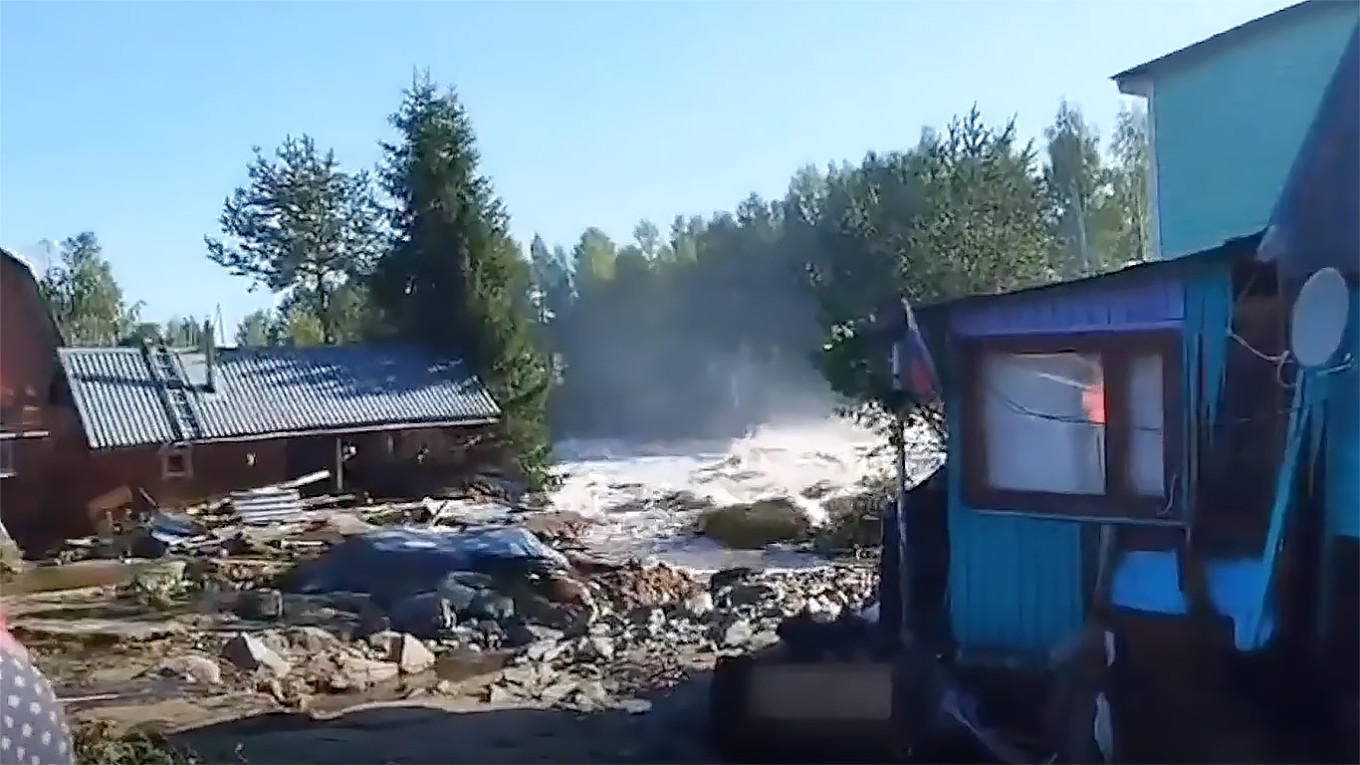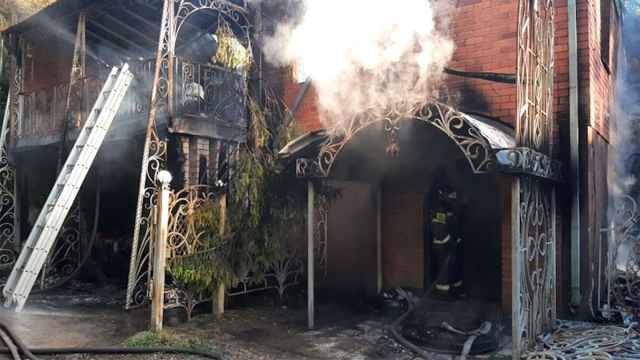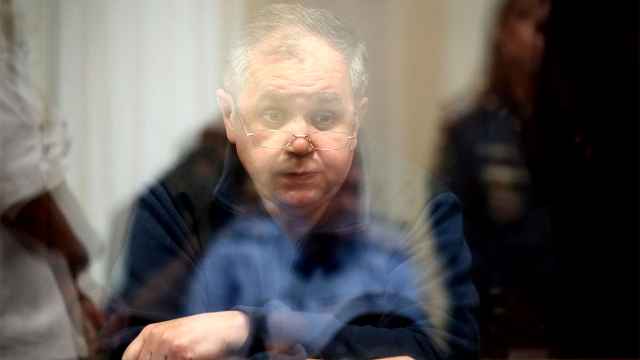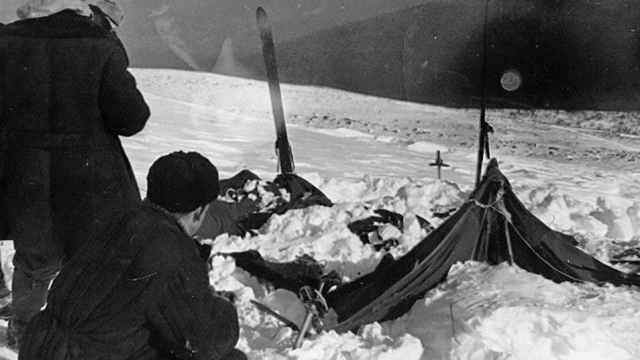Two people were killed after a torrent of water poured over a cofferdam in northwestern Russia early Monday and flooded the surrounding area, authorities said.
Water washed away the temporary barrier between two locks of the White Sea-Baltic Canal in the republic of Karelia, regional head Artur Parfenchikov wrote on the Russian social media website VKontakte.
Parfenchikov said that more than 100 firefighters and emergency workers were sent to the area impacted by the flooding. Authorities declared a state of emergency in response to the incident.
On Tuesday, Russia’s Emergency Services Ministry said the bodies of a man and a woman killed in the previous day’s flooding had been found. Ten others were reported injured.
The state-run TASS news agency, citing emergency service officials, reported that 13 homes were destroyed and three people were rescued. Nine people had initially been reported missing, but rescuers later found seven of them, including children.
Videos shared on social media showed water rushing over what appeared to be the area where the cofferdam was placed. A woman in one of the videos shouts: “The dam is gone, it’s simply gone… homes were washed away with the people inside.”
The White Sea-Baltic Canal connects northwestern Russia’s White Sea with Lake Onega and has an outlet to the Baltic Sea. According to Parfenchikov, the cofferdam was installed for reconstruction work on the canal.
Law enforcement authorities opened a criminal investigation into the dam break, which they are treating as a violation of construction safety rules.
Monday’s dam break marks the second such incident in Russia in recent days. On Friday, heavy rains led to the collapse of a dam in the Ural Mountains region of Chelyabinsk, where at least one person was killed by flooding in nearby villages.
In April, the collapse of a dam in the southern Orenburg region led to historic flooding throughout the region, forcing thousands of people to evacuate their homes.
A Message from The Moscow Times:
Dear readers,
We are facing unprecedented challenges. Russia's Prosecutor General's Office has designated The Moscow Times as an "undesirable" organization, criminalizing our work and putting our staff at risk of prosecution. This follows our earlier unjust labeling as a "foreign agent."
These actions are direct attempts to silence independent journalism in Russia. The authorities claim our work "discredits the decisions of the Russian leadership." We see things differently: we strive to provide accurate, unbiased reporting on Russia.
We, the journalists of The Moscow Times, refuse to be silenced. But to continue our work, we need your help.
Your support, no matter how small, makes a world of difference. If you can, please support us monthly starting from just $2. It's quick to set up, and every contribution makes a significant impact.
By supporting The Moscow Times, you're defending open, independent journalism in the face of repression. Thank you for standing with us.
Remind me later.






